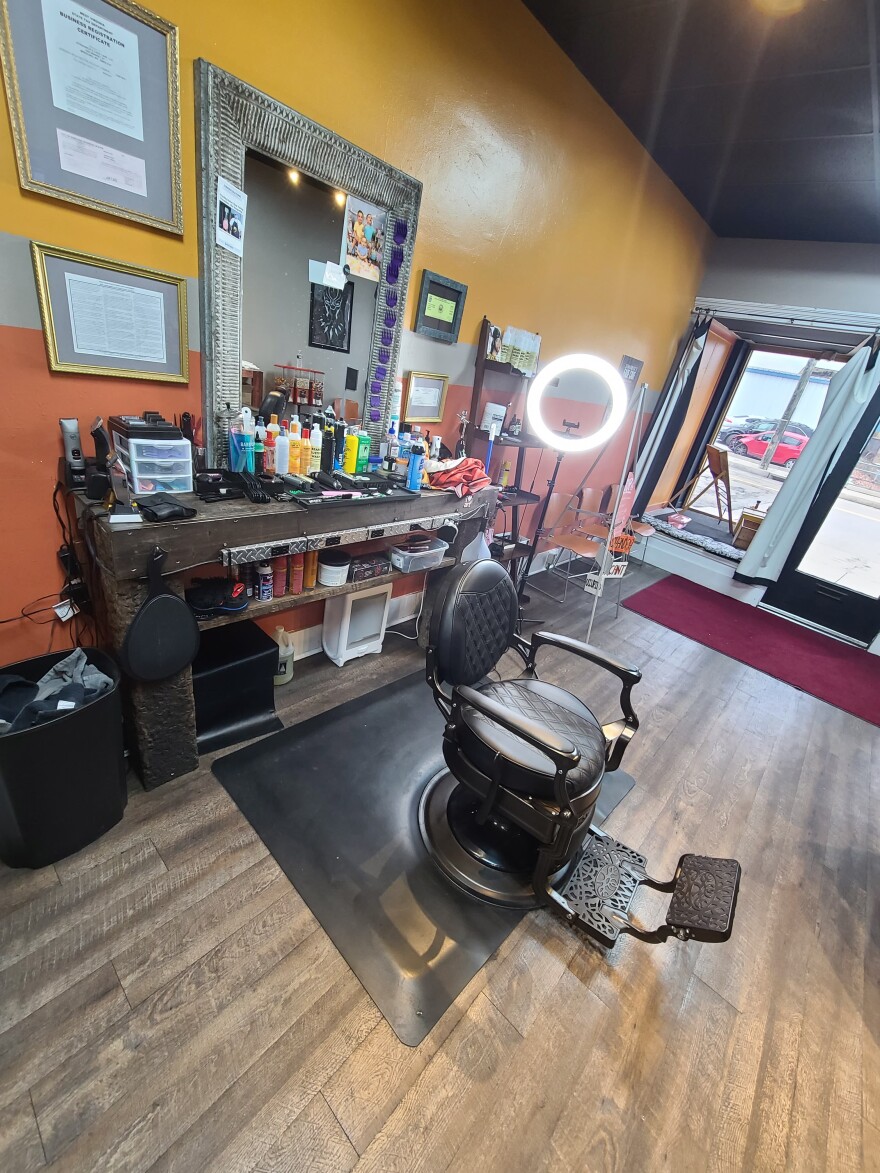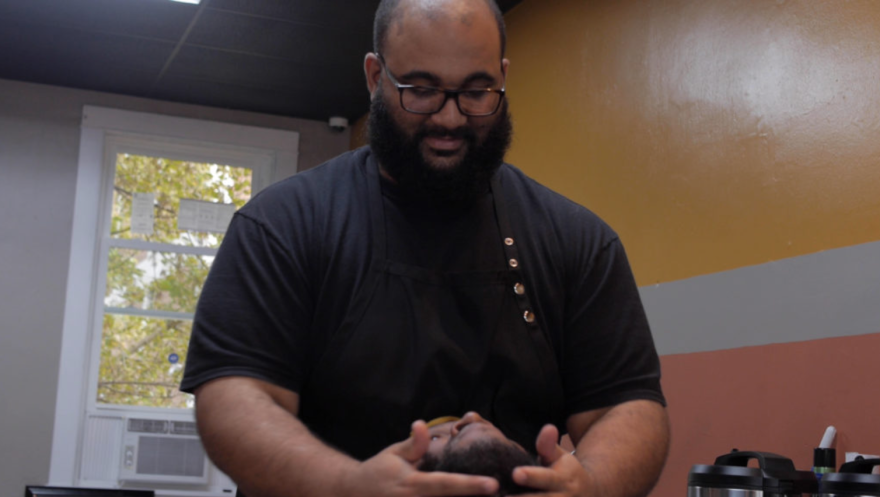The coronavirus relief bill under consideration in Washington would make more money available for small businesses hit hard by the pandemic. Hair stylists and barbers are among those struggling, including Black business owner Chad Stradwick in Wheeling, West Virginia.
The Ohio Valley ReSource first spoke with Stradwick in May, just when he was reopening Stradwick’s Fade Cave, and we recently got back in touch to see how he’s faring. Since then the small business owner has adjusted to some serious cutbacks.
The pandemic forced Stradwick to close the shop for about six weeks. He’s had to cut his clientele down to a third. He hasn’t cut any of his older client’s hair since the pandemic started, and he’s changed guidelines to reduce extra people coming into the shop. All of the adjustments have changed the shop’s atmosphere.

“Things are wildly different,” Stradwick said. “It doesn’t really have the feel of a barbershop anymore because we try to keep talking to a minimum and we all wear masks. I wear a full respirator while I’m cutting. No more than one client per barber or per cosmetologist is allowed in the shop at a time.”
Before the pandemic, the Fade Cave used to be a place where the community could come and socialize, but COVID-19 has diminished those gatherings.
“Usually we’d pack the barbershop tight with a bunch of people and we’re being loud and telling jokes and playing music and kicking it. You know, my friends would be down there and stuff. It’s just kind of like somber now. It’s just kind of like work,” Stradwick said.
“I’m not saying it’s not fun, I’m saying it's way more fun when you get to do what you love. I love people. I love joking and cutting up and now that’s kind of come to a halt. Sometimes clients are even scared to talk. Sometimes clients don’t want to take their masks off to get their beard trimmed because of COVID and it kind of put a bitter taste in my mouth.”
Stradwick said he kept a clean barbershop before COVID but now says he went “over the top” with sanitation. He hired a company to install hands-free sanitizer and paper towel stations to help keep customers and his family safe. Stradwick has four immunocompromised people in his family that he’s in contact with daily. Their safety is his top priority.
“If there were funds available for me to step away from my job and not go there, I would do it,” he said.
“You have to choose between feeding your family or keeping them safe. Well, I’m not rich. I don’t have anything in savings for an elongated period of time to allow my family to eat but it is what it is. We have a mortgage, we have two car payments, I have student debt that I’m paying off, you’ve got your regular bills. We don’t have any assistance. It just boils down to, people in different tax brackets aren’t experiencing these same things,” he explained.
Stradwick said he received the first stimulus check in April. But his unemployment assistance wasn’t approved until August. It was helpful, he said, but not timely, and “timely help is the best kind of help,” he said.
If not for help from his family during those trying times, Stardwick said, the shop would’ve been in trouble.
“For your average American who lives paycheck to paycheck that’s not the case so I can’t imagine what business owners who had no savings and no families could help,” he said. “I’m sure lots of doors closed on businesses for that reason.”

Although Congress approved a bill for continued federal coronavirus relief, a last minute intervention by President Donald Trump threw that bill into uncertainty at the time this story was published. The $900 billion coronavirus relief bill included an extension on eviction moratoriums, an additional $300 per week for unemployed workers, $600 stimulus checks, and $300 billion that would go toward helping small businesses.
Shortly after Congress approved the relief plan, President Trump criticized the bill and said a $600 stimulus check was too low. He told members of Congress to increase the amount to $2,000.
Congress has until January 3rd to pass a relief bill, when the current Congressional session expires.
Stradwick says he’s frustrated by the lack of government leadership and from people not taking health precautions seriously. As this pandemic year comes to an end, small business owners like him continue to struggle.
UPDATE: President Trump signed the coronavirus relief bill with no changes on Sunday, Dec. 27.
The Ohio Valley ReSource gets support from the Corporation for Public Broadcasting and our partner stations.




